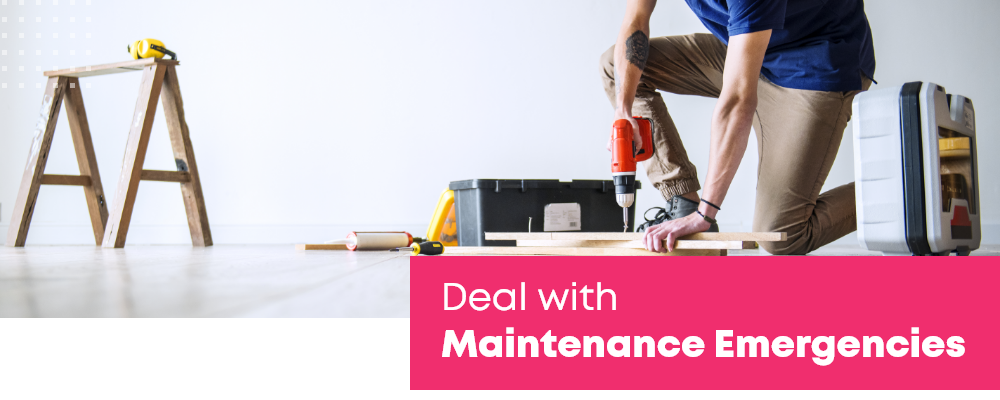How to Deal with Maintenance Emergencies: Best Practices from Property Management Experts
As a property owner, dealing with maintenance emergencies is an inevitable part of owning and managing rental properties. Emergencies can range from minor issues like clogged drains to major problems like flooding or electrical outages. Knowing how to handle these situations can make all the difference in minimizing the damage and getting your property back to normal as quickly as possible. In this blog, we’ll discuss best practices for dealing with maintenance emergencies, based on the advice of property management experts.
Develop an Emergency Plan
The first step in dealing with maintenance emergencies is to have a plan in place. This plan should outline who to contact in case of an emergency, including your tenants, property management team, and contractors. You should also have a list of emergency contacts, including plumbers, electricians, and other professionals who can quickly address any issues that arise. It’s also important to have an evacuation plan in place in case of emergencies like fires or floods.
Communicate with Tenants
Good communication with tenants is essential in handling maintenance emergencies. Make sure your tenants know how to contact you or your property management team in case of an emergency. Provide them with clear instructions on what to do in case of a maintenance emergency, including when to call emergency services and when to contact you or your management team. Keeping your tenants informed can help prevent panic and confusion in the event of an emergency.
Address Issues Quickly
Time is of the essence in dealing with maintenance emergencies. Even small issues like a leaky faucet or a clogged drain can quickly escalate into larger problems if not addressed promptly. Make sure you have a system in place for prioritizing and addressing maintenance issues as they arise. This can include having a designated person responsible for receiving and addressing maintenance requests, as well as a system for tracking the progress of each request.
Be Prepared for Common Emergencies
Some maintenance emergencies are more common than others. Being prepared for these emergencies can help you respond quickly and minimize damage. Common emergencies include:
- Plumbing issues: Leaks, burst pipes, and clogged drains are all common plumbing emergencies. Make sure you have a plumber on call who can respond quickly to these types of issues.
- Electrical issues: Power outages, tripped circuit breakers, and other electrical issues can be dangerous and require immediate attention. Have an electrician on call who can address these issues quickly.
- HVAC issues: A malfunctioning heating or cooling system can be uncomfortable for your tenants and cause damage to your property. Have an HVAC technician on call who can address these issues quickly.
Conduct Regular Inspections
Prevention is key when it comes to maintenance emergencies. Conducting regular inspections of your properties can help you identify potential issues before they become emergencies. This can include inspecting plumbing and electrical systems, HVAC systems, and other important components of your property. Regular inspections can help you catch small issues before they turn into major problems.
Work with a Property Management Company
Dealing with maintenance emergencies can be overwhelming, especially if you own multiple properties. Working with a property management company can help you streamline the maintenance process and ensure that issues are addressed quickly and efficiently. A property management company can provide 24/7 emergency maintenance services, handle tenant communications, and work with contractors to address any issues that arise.
Conclusion
To deal with maintenance emergencies effectively, property owners should have an emergency plan in place, communicate with tenants, address issues quickly, be prepared for common emergencies, conduct regular inspections, and work with a property management company. These practices can help minimize damage and keep properties running smoothly. By staying calm, seeking professional help, and following these best practices, property owners can handle any maintenance emergency that comes their way.
